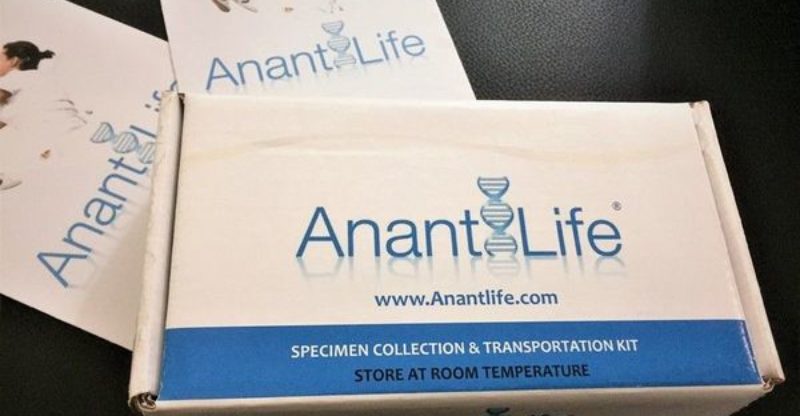Canadian company AnantLife, which specializes in genetic testing for a variety of medical conditions including cancer, autoimmune disorders, and dietary issues, and now they’ve added the world’s first cannabis genetic test to let people know just how their body will react to it.
This test can tell you that you may have a negative reaction to pot even if you’ve never used it before, along with if you’re likely to develop a habitual smoking problem. Even more convenient is that you can take it in the privacy of your own home.
It works like this: you take a sample of your saliva, mail the sample to the company, and they perform NextGen sequencing on your DNA. Through molecular biology, they can identify genetic “markers” in your DNA which can indicate a higher probability of bad reactions from cannabis use, including complications with mental disorders, or the risk of becoming dependent on it.
This is how they describe these markers: “Genetic markers are identified by what geneticists call “polymorphisms” in a particular gene. Although genes always have specific locations on the DNA, regardless of the individual, the exact makeup of that gene may differ from person to person. Those differences are polymorphisms, and certain gene variants carry specific polymorphisms. NextGen sequencing is designed to find those particular polymorphisms in the DNA, then copy that gene millions if not billions of times. If the gene in question is present in someone’s DNA, the copies will show up during analysis. If the individual does not possess that gene variant, the NextGen sequencing will be incapable of creating copies of that gene.”
Dr. Rahul Kushwah, the chief science officer and co-founder at AnantLife, explains how this test helps those who are worried about becoming dependent on cannabis can learn more about how their body will react by using this test, “There are markers that have shown association with cannabis dependence. Before cannabis, for instance, opioids were used all over the place for treating pain, and they’re still being used all over the place. Opioid dependence is a massive, massive problem all over North America. With medical cannabis, the hope is that a lot of patients who have been taking opioids for their pain could potentially be weaned off the opioids and be given medical cannabis instead. But before a physician feels comfortable prescribing medical cannabis, they need to understand how this patient’s body is going to react to it. You wouldn’t want to give medical cannabis to somebody who is highly predisposed to cognitive defects, perhaps even schizophrenia.”
AnantLife’s cannabis genetic test is accredited by the College of American Pathologists (CAP) and is certified by the Clinical Laboratory Improvement Amendments (CLIA), the gold standards of medical testing certifications.
This test is available online for $699.








